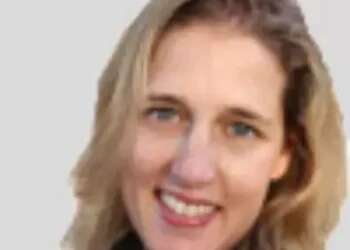In late September, Sheikh Mehmet Adil al-Haqqani, leader of the Naqshbandi Haqqani Sufi Order, paid a first, historic, visit to Israel and the Palestinian Authority. The visit was intended to bolster ties with followers of the order and spiritual and religious ties between Islamic holy sites and Sufi Islam. In effect, the Higher Islamic Sufi Council in Jerusalem and the Palestinian Lands took advantage of the visit to challenge Israeli sovereignty in Jerusalem and shore of the PA's political and religious legitimacy in light of its struggle against Hamas.
Al-Haqqani, who was born in Damascus and currently lives in Istanbul, is considered one of the leading figures in Sufi Islam, the main school of Islamic mysticism. Since 2014, he has served as head of the Naqshbandi Haqqani order, a branch that his father established in Cyprus in the second half of the 20th century. The order can trace its roots back to the 14th century in the central Asian city of Bukhara. The order itself is a worldwide presence, stretching from India in the east to the US in the west, and even to Israel. It comprises a social network that crosses continents and includes some 60 million Sufi followers.
Follow Israel Hayom on Facebook and Twitter
Al-Haqqani and over 100 of his followers came to Israel and visited some major religious sites, including the Cave of the Patriarchs in Hebron; the Great Mosque of Nablus; the grave of Rabaa Al-Adawiya, a well-known female Sufi leader from the eighth century; Al-Aqsa Mosque in Jerusalem; and other sites in Ramallah and Jericho. He was in Israel as part of a tour that started at the beginning of the year and included Britain and South Africa. In November, he is scheduled to visit Iran.
Although his visit to Israel was not outwardly political, the Higher Islamic Sufi Council wanted to infuse it with political significance. Saad Sharaf, a senior council member, emphasized that Al-Haqqani played an important role in promoting the Palestinian cause: "Every Sufi who enters Palestine [becomes] an ambassador for our problem the moment he returns to his native country to tell of the suffering of our people."
At the end of his visit, Al-Haqqani and the council members even signed an agreement to strengthen ties between the Palestinians and Sufi Muslims worldwide. In other words, Al-Haqqani is described as a partner in the Palestinian public relations campaign to promote their own narrative, challenge the Israeli narrative, and bolster strengthen the Muslim identity of Jerusalem.
The Higher Islamic Sufi Council was founded at the start of 1995 at the order of then-PLO leader Yasser Arafat, who was an enthusiastic supporter of Sufi Islam. He sought to foster an apolitical Islamic entity that would back his policies, grant his regime religious legitimacy, and nibble away at Hamas' power base. Arafat himself, along with some of his colleagues in the PLO leadership, were even members of one of the Sufi orders in the PA. When he died in 2004, the council ceased to operate. In 2016, its activity was reinstated with support from PA President Mahmoud Abbas in light of Fatah's struggle with Hamas and Abbas' desire to check the influence of the Islamic State's extremist thinking. Basically, the council has an interest in working against the Hamas leadership, which is hostile to Sufi Muslims in the Gaza Strip and sees them only as distant cousins who cooperate with Israel. The council has repeatedly announced that it supports the political line of the PLO and Abbas, including on matters involving Jerusalem.
So the council used Al-Haqqani's visit to Israel for political ends. The council wanted to use the Haqqanniya-Naqshbandiyya order's global presence to bolster the PA's religious image as the protector of Islamic holy sites. However, the visit was also of great importance to Israel, especially because it ignored the various Islamist movements that have banned visits to Israel for fear they will contribute to recognition of Israeli sovereignty over Islamic holy sites and normalization of relations with Israel. Even now, some Salafi factions in the Gaza Strip and outside it are defining Al-Haqqani's visit as "quiet normalization." It gave millions of Sufi Muslims all over the world legitimacy to visit Israel, and it is in Israel's interest to foster ties with Al-Haqqani.


